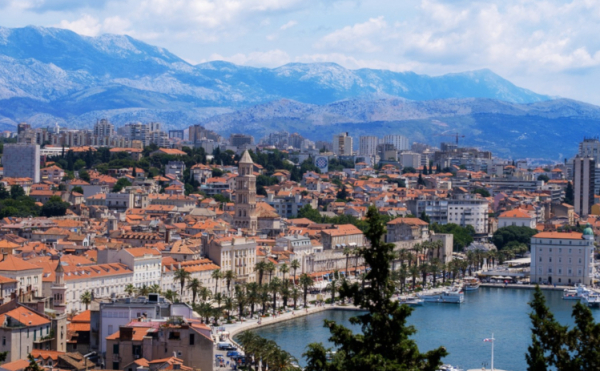This article serves as a comprehensive guide for investors interested in owning vacation homes in Croatia, covering everything from the advantages of investing in the country to the practical aspects of purchasing and managing a property.
- The Allure of Croatia's Vacation Home Market:
Croatia's pristine beaches, crystal-clear waters, and picturesque towns have captured the hearts of travelers from around the world. Investing in a vacation home allows individuals to have their own slice of paradise while enjoying the country's enchanting landscapes and vibrant culture. Croatia offers a diverse range of locations, from popular coastal areas like Dubrovnik, Split, and Istria to hidden gems along the Adriatic coast, each with its own unique appeal. Owning a vacation home in Croatia provides the opportunity for personal use, family getaways, and the potential for rental income during the peak tourism seasons.
- Choosing the Right Location:
When considering a vacation home investment in Croatia, selecting the right location is crucial. Coastal regions are often the preferred choice due to their proximity to the sea and well-developed tourism infrastructure. Dubrovnik, known as the "Pearl of the Adriatic," offers a captivating historical setting, while Split combines ancient Roman architecture with a lively atmosphere. Istria, in the northwest, boasts picturesque landscapes, charming towns, and a renowned culinary scene. Researching different regions, assessing accessibility, amenities, and rental potential can help investors make an informed decision.
- Purchasing Process and Legal Considerations:
Acquiring property in Croatia involves a series of legal procedures that investors must navigate. Non-EU citizens can purchase real estate, subject to reciprocity agreements and approval from the Ministry of Justice. Engaging a reputable real estate agent and legal advisor is essential to ensure a smooth transaction and compliance with all legal requirements. Conducting thorough due diligence, including verifying ownership, surveying the property, and assessing any potential encumbrances or restrictions, is crucial before finalizing the purchase.
- Financing Options and Tax Considerations:
Financing the purchase of a vacation home in Croatia can be done through a combination of personal funds, mortgages, or loans. Local banks and international financial institutions provide financing options for both residents and non-residents. It's important to explore different financing avenues and understand the associated interest rates, repayment terms, and eligibility criteria. Additionally, investors should be aware of tax obligations, such as property taxes and income taxes on rental income, and consult with tax professionals to ensure compliance with Croatian tax regulations.
- Rental Income Opportunities:
Croatia's booming tourism industry presents lucrative opportunities for generating rental income from vacation homes. The country experiences high demand during the peak summer season, attracting tourists from all over the world. Renting out the property when not in use allows investors to offset expenses and potentially generate substantial returns. Partnering with local property management companies or utilizing online rental platforms can facilitate the rental process, marketing the property to a broader audience and ensuring smooth operations.
- Property Management and Maintenance:
Owning a vacation home in Croatia requires effective property management and maintenance. Investors can choose to handle management themselves or engage professional property management services. These services typically encompass marketing, guest communication, key exchange, cleaning, maintenance, and repairs. A well-maintained and well-managed property not only ensures a pleasant experience for guests but also helps protect the long-term value of the investment.
- Return on Investment and Long-Term Appreciation:
Investing in a vacation home in Croatia offers the potential for both short-term rental income and long-term appreciation. The country's growing tourism sector, coupled with its natural beauty and cultural appeal, contributes to the steady appreciation of real estate values. Additionally, Croatia's improving infrastructure, transportation links, and government initiatives to promote tourism further enhance the investment potential. However, investors should be mindful of market fluctuations and consider a long-term investment horizon to maximize returns.
Conclusion:
Investing in a vacation home in Croatia allows individuals to own a piece of the country's breathtaking beauty and vibrant culture. With careful consideration of location, legal procedures, financing, rental income opportunities, and property management, investors can navigate the process successfully and reap the rewards of their investment. Croatia's allure as a holiday destination, coupled with its growing tourism industry, positions it as a compelling choice for those seeking to own a dream vacation home in paradise.

